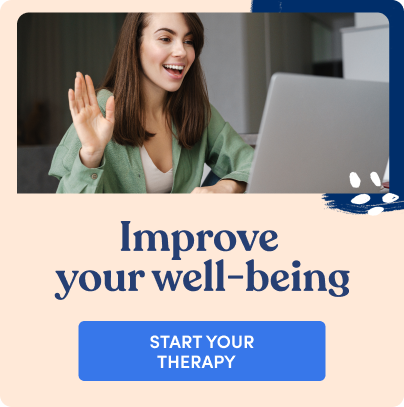Have you ever thought about how to improve your self-esteem? There are a number of factors that can affect this, and the key is to seek professional help if you think your self-esteem is declining and need guidance.
Self-esteem is one of the most important pillars of our emotional well-being. However, the level of self-esteem is not innate, it must be cultivated throughout life. When we suffer because our self-esteem is low, taking care of ourselves will help us love ourselves more. When we live a moment characterized by high self-esteem, these actions of self-respect help us maintain this level of inner assertiveness. Self-esteem improves our quality of life because it helps us not to take criticism personally, or allows us to have better resources to respond to that situation, without sinking mentally because of what happened.
Ultimately, through this process of inner self-discovery, we learn to differentiate between facts and people. So, when you experience a setback, try to remember that your value goes beyond that specific circumstance. This is also the case with success. Otherwise, we can be very vulnerable by increasing the fragility of living in a constant wheel of emotion where perception changes depending on the point of view marked by the situation of the moment
.Learn how to improve your self-esteem
Today is a good day to start looking at yourself in the mirror with the new outlook of kindness, affection, and respect. Aspects we fail to practice when we judge ourselves harshly. In essence, this is self-esteem.
So, how to improve your self-esteem? How to start loving yourself more? At ifeel we provide you with the necessary guidelines to take care of yourself the way you deserve with these personal development tools:
1. Learn how to say no
Remember you are free to set limits on others. The fear of saying no is one of the most deeply rooted in the heart because behind this fear lies anguish in the face of loneliness. However, there is an inner sadness that hurts even more: to say yes when what you really wanted was to say no to. Your personal relationships improve when you live in coherence with your true desires. So, how to improve your self-esteem? It is like a muscle, it is trained daily, that is, through experience.
2. Work as a source of self-esteem
Work is one of the most important sources of self-esteem. However, there can be very different circumstances, circumstances that take you away from the ideal of professional development in which you would like to be. For example, perhaps your job does not fit your area of professional training. In that case, we suggest keeping yourself motivated through an active job search plan focused on your vocational sector. Practice a volunteer activity of one or two hours per week, which allows you to perform a function that does fall within your professional field and that can complement your resume, and that can also raise your emotional salary at that time.
3. Autonomy
Gaining autonomy and independence also means strengthening self-esteem. For example, a person with low self-esteem can stop doing many things alone if they have the tendency to link that moment with friendship or a partner. For example, if you always go to the movies with someone else or if you never eat alone in a restaurant, schedule a date alone with yourself. Live the experience of going to the cinema to see a new movie on your own.
This initiative improves your quality of life because it allows you to overcome your fears but also enhances personal empowerment in time management. That is when we do not stop doing things because we have no one to enjoy them with, at that moment we feel in control of our own life by making better use of those leisure spaces that would otherwise be less meaningful.
4. Physical activity
Physical exercise is one of the most important stimuli to learn how to improve your self-esteem. Through the simple practice of a walk, you receive sensory stimuli that elevate your well-being in an integral way, thanks to the well-being routine of integrating body and mind. What is your favorite sport?
5. Face your fears
Be aware of the fears that limit you. When something scares you, don’t get stuck in your own fear, but try to connect with what is on the other side of that fear. Often we fear what we most desire because we are affectively involved with that goal. Take pen and paper and write down what the fear is, what desire it connects with and what personal resources you have to manage that situation.
6. Power lies in the words
We encourage you to consciously strengthen your daily language words with a positive and kind vital meaning. Words have an imprint on your inner self, they create an emotional disposition towards life. For example, be emotionally generous to those around you. Nourish the self-esteem of others with the sincere recognition of those virtues or gestures that you admire.
7. Who or what inspires you?
What person is a role model for you because of their personal ethics and attitude in the face of negative circumstances? Visualize everything you have learned from that person. Take a deep breath and try to think that you have all the internal resources necessary to model that person’s attitudes. Specify one virtue you would like to nurture. Then, draw up a plan of action with the steps to follow to achieve it.
8. Focus on what you like
Your self-esteem improves noticeably when you begin to devote more time to what you really like. The beginning of spring is a good time to readjust your schedule and implement new habits, taking advantage of the long days of light and pleasant temperatures. Take inspiration from nature itself as a metaphor and visualize how the landscape is reborn after the dull tones of winter. You too can experience this rebirth in your self-esteem.
9. Physical contact
Physical contact reinforces emotional affection, which is the vitamin for the soul. That is, hugs, with people you trust, have a medicinal value for you. Likewise, the gesture of smiling can change your perspective of that moment. Since the other person will most likely respond to your smile with another smile, following the law of the mirror generates feedback of recognition that raises self-esteem. After all, we are social beings by nature.
10. Avoid tunnel vision
Try not to describe reality in extreme terms such as “always” or “never”. Since concepts such as “everything” or “nothing” do not fit an existence rich in nuances either. Often, this language is the result of low self-esteem that enhances tunnel vision in the face of problems. A vision that leads us to believe there is only one option in a given situation. In that case, broaden your perspective, look for other options. You are sure to find them.








